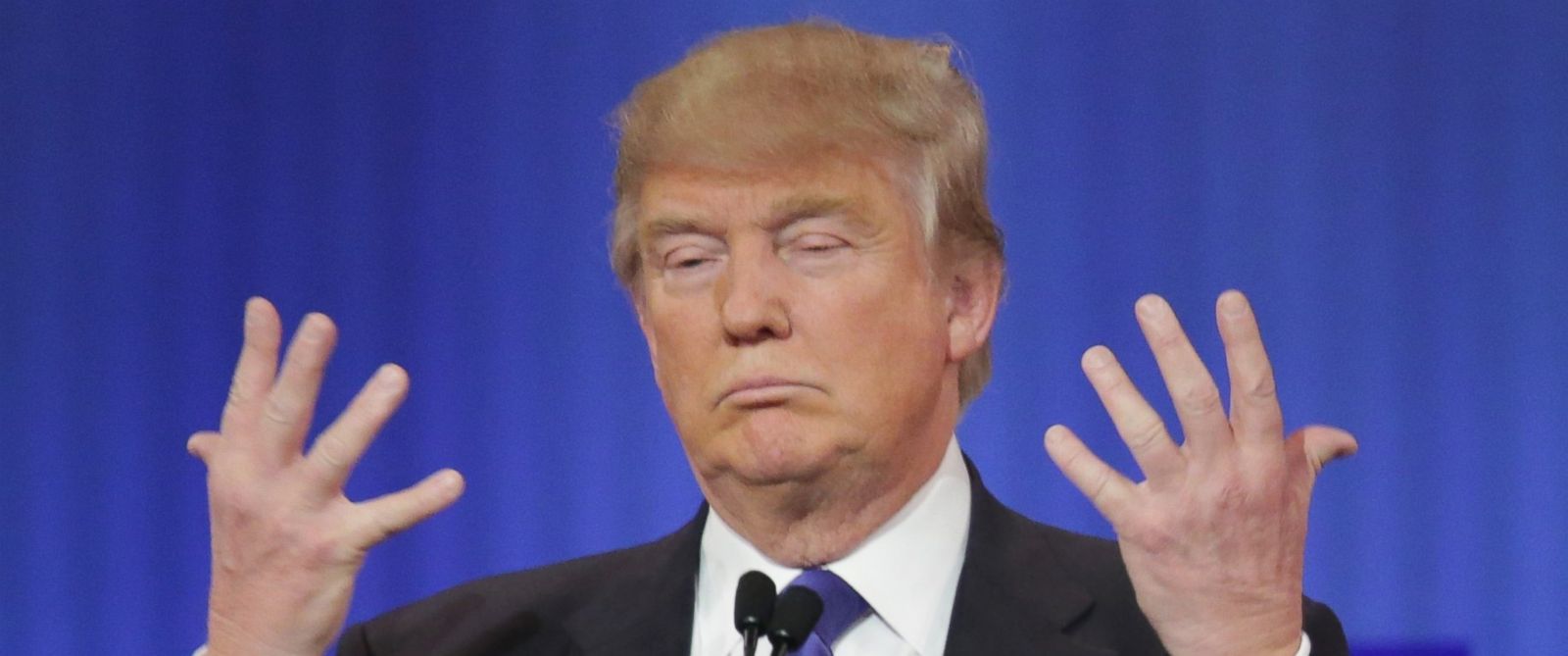
Donald Trump has, somewhat ironically, ushered in a golden age of iron manning.  Here’s how it goes: Candidate Trump says something false, crazy, racist, etc., and Trump surrogate  appears somewhere to recast what he said as totally reasonable. This is now a daily occurrence, so you can fill in your own examples (here’s one).
The iron man works best when the person who’s getting iron-manned plays along. Oddly, this doesn’t always work with Trump. He often seems unaware that he needs help. Here is Trump supporter Hugh Hewitt trying (and failing) to iron man him:
I’ve got two more questions. Last night, you said the President was the founder of ISIS. I know what you meant. You meant that he created the vacuum, he lost the peace.
DT: No, I meant he’s the founder of ISIS. I do. He was the most valuable player. I give him the most valuable player award. I give her, too, by the way, Hillary Clinton.
HH: But he’s not sympathetic to them. He hates them. He’s trying to kill them.
DT: I don’t care. He was the founder. His, the way he got out of Iraq was that that was the founding of ISIS, okay?
HH: Well, that, you know, I have a saying, Donald Trump, the mnemonic device I use is Every Liberal Really Seems So, So Sad. E is for Egypt, L is for Libya, S is for Syria, R is for Russia reset. They screwed everything up. You don’t get any argument from me. But by using the term founder, they’re hitting with you on this again. Mistake?
DT: No, it’s no mistake. Everyone’s liking it. I think they’re liking it. I give him the most valuable player award. And I give it to him, and I give it to, I gave the co-founder to Hillary. I don’t know if you heard that.
I’m informed now that Trump finally gotten the picture. Turns out it was sarcasm. Yeah, like’s that’s good defense.
 The argumentative theory of argumentation maintains that reasoning is for arguing–actually, for winning arguments (but not in the philosophy way). Here’s the idea (from
The argumentative theory of argumentation maintains that reasoning is for arguing–actually, for winning arguments (but not in the philosophy way). Here’s the idea (from 



